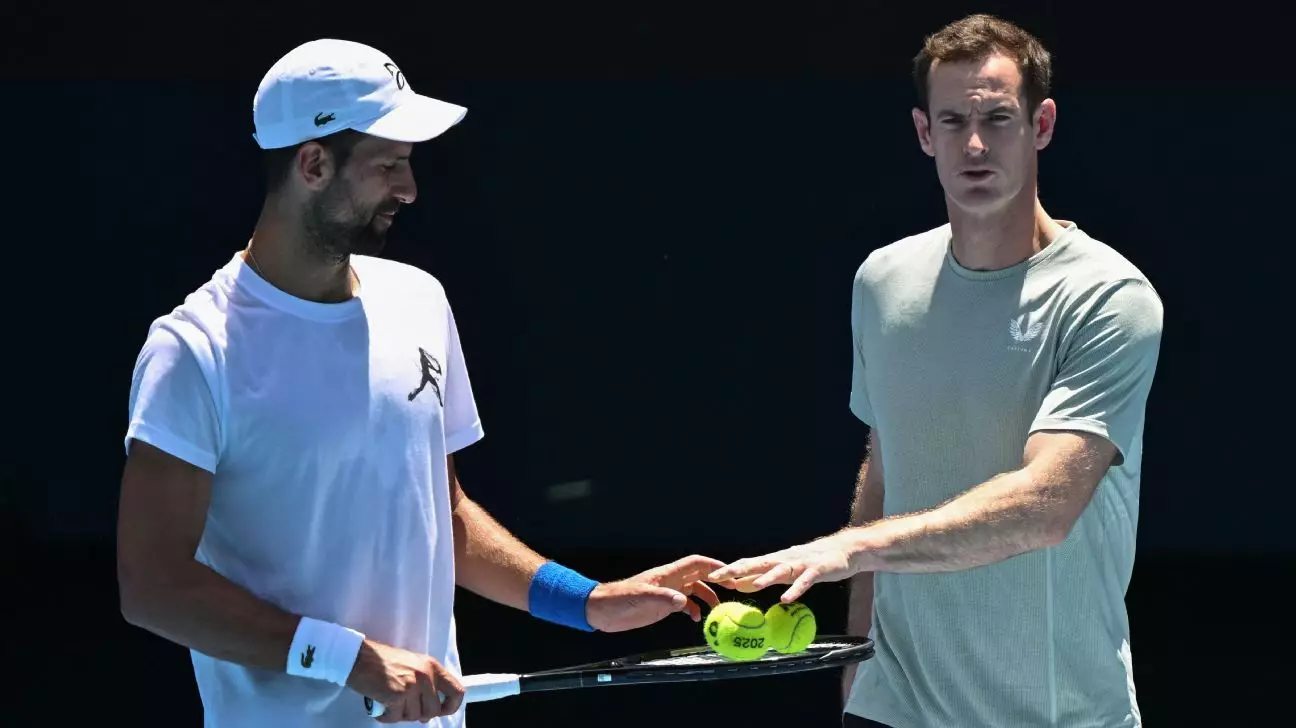In the world of professional sports, coaching partnerships often oscillate between serendipity and disappointment. The recent split between Andy Murray and Novak Djokovic after a brief six-month collaboration serves as a prime example of this dynamic. This unexpected decision has left many fans perplexed, especially given Djokovic’s paramount ambition of clinching his eighth Wimbledon title. Their separation, prompted by a series of underwhelming results, underscores the fragile nature of athletic chemistry and the high stakes involved in elite tennis.
Acknowledgments Amidst Challenges
Both Djokovic and Murray took to social media to express gratitude towards one another. Djokovic commended Murray for not just his coaching but also for fostering a deeper friendship over their short tenure. Murray, often perceived as a fierce competitor, showcased his respect as a former rival by appreciating the unique opportunity he had to guide one of the sport’s legends. Such expressions highlight the mutual respect that exists at the highest levels of competition, even when partnerships falter. Yet, one must wonder if these declarations were genuinely heartfelt or simply customary. In high-pressure environments, relationships can become transactional, and mutual admiration can sometimes mask underlying discontent.
Analyzing Djokovic’s Recent Struggles
Despite their camaraderie, Djokovic’s performance dipped sharply following their partnership. His semifinal appearance at the Australian Open hinted at promise, but injuries quickly derailed his momentum. Subsequently, he stumbled at the Miami Open, failing to win the title he had coveted so dearly. The significance of his defeats at major tournaments cannot be understated; they reveal the psychological toll that competing at the highest level imposes on elite athletes. This scrutiny raises questions about whether the coaching alliance could have provided the necessary tactical adjustments to revitalize Djokovic’s game.
The Implications of an Early Split
The split raises pertinent questions about the efficacy of coaching partnerships and the impact on athlete performance. The prestige associated with coaching a player of Djokovic’s caliber seems enticing, yet the realities can be less glamorous. Without a doubt, the pressures of achieving immediate results can overwhelm both athletes and coaches. As Djokovic embarks on the next leg of his season, including his decision to participate in the Geneva Open, a crucial pivot in his journey is underway. If not careful, the player may risk losing his competitive edge, especially as he approaches a critical point in his career at the age of 38.
Looking Ahead: Djokovic’s Future
As Djokovic approaches the French Open with uncertainty swirling around him, it is crucial to view the wider implications of this coaching change. While the tennis community wants him to bounce back, the path to reclaiming his status as a titan in the sport is fraught with obstacles. His decision to skip the Italian Open adds further weight to the air of unpredictability. How will Djokovic recalibrate his strategies without Murray’s guidance? It’s a question that not only affects his upcoming performances but also rattles the very foundations of his career as he seeks to adapt and overcome the pressures of competitive tennis.


Leave a Reply